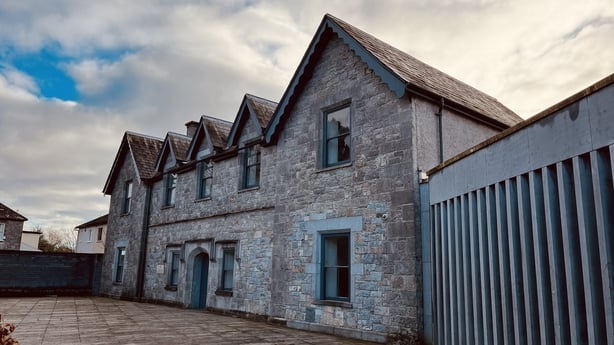The inquest into the death of Coast Guard volunteer Caitriona Lucas has heard further evidence about staffing issues in the Irish Rescue Coast Guard service (IRCG) in the lead up to the operation, in which she lost her life.
The 41-year-old died while taking part in a search and rescue operation near Kilkee in September 2016.
On the second day of the resumed inquest at Kilmallock Courthouse, a number of witnesses have detailed concerns about personnel shortages that were raised with IRCG management, in the days prior to Ms Lucas' death.
Limerick Coroner John McMahon has also heard evidence about issues with safety equipment on the rigid inflatable boat (rib) on which Ms Lucas and two crew members put to sea, before it capsized close to cliffs on the afternoon of 12 September, 2016.
Chris Kearns, a volunteer member of the Coast Guard service in Kilkee said he had carried out a regular monthly inspection of the Delta rib on 8 September, which revealed a number of concerns.
A radar on the vessel had been switched off, while the Automatic Identification System (AIS) had not been activated. Mr Kearns also identified an issue with a seat on the rib. He said he had flagged these issues with ICGS management in a meeting the following day.
Another volunteer, Gary Kiely, confirmed that a lack of experienced personnel at Kilkee had been brought to the attention of managers at the same meeting. He said they indicated that they would examine the issue at a later date.
The concerns centred on how this could impact in the event of a major incident that would be ongoing for a number of days.
The inquest previously heard that it was accepted that Ms Lucas, who volunteered with the Doolin Coast Guard Unit, was assisting her colleagues in Kilkee because they were short of personnel to take part in an ongoing Search and Rescue operation.
Michael Kingston, who is representing the Lucas family, raised the findings of a Marine Casualty Investigation Board (MCIB) report into a previous incident off the Kerry coast, in which recommendations were made about surf zones and precautions the ICGS should make in this regard.
The inquest was told that the area in which the tragedy occurred was one such zone.
Mr Kearns said the recommendations about improving procedures and precautions were never brought to his attention and said he was shocked to subsequently see the MCIB advice in that regard.
Mr Kiely concurred with that evidence, telling the Coroner’s Court that no training had been given regarding the identification of potential surf zones, or what to do in the event a boat capsized in such conditions.

This afternoon the inquest heard further evidence from a number of Coast Guard personnel, as well as others who were involved in the search and rescue operation after a Mayday call was issued.
Retired IRCG official Hugh Barry was asked by Mr Kingston about the manner in which MCIB recommendations were implemented, as well as being questioned about some evidential material that had been gathered as part of an inquiry into the death of Ms Lucas by the Health and Safety Authority.
A subsequent witness, Andrew O'Shea, a clerical officer at the Department of Transport, detailed how he had seen Mr Barry cutting a piece of cloth from a piece of PPE that was being stored in a facility in Blanchardstown in Dublin.
Mr O’Shea said after the IRCG badge was removed, he had been told to put the garment into a skip at the Coast Guard stores, in late October 2016.
He told the inquest that other garments involved in the accident were also being held at the same facility.
Mr Kingston put it to another witness, John McLoughlin, from the Department of Transport, that there was evidence to show that Ms. Lucas’ dry suit was full of water when her body was recovered from the sea.
He put it to Mr McLoughlin that "even if it was deemed fit for purpose, with the best will in the world, would it need to be subsequently examined, to ensure the safety of all Coast Guard volunteers?"
Mr McLoughlin agreed with this viewpoint before giving details of the protocols in place for reporting issues with boats or safety equipment.
Today’s proceedings ended with evidence from RNLI volunteers and Radio Officers who had been involved in the tasking of crews and subsequent rescue operation.
Denis O’Leary, from the Valentia Marine Rescue Sub Centre provided a timeline of the day’s events, which included the tasking of two Rescue Helicopters, the Doolin Coast Guard, along with Civil Defence and National Ambulance Service personnel.
He told the inquest that the Naval Service advised that they had no vessel on the west coast that could assist the operation at 1.25pm on the day in question.
The inquest will resume in the morning.







